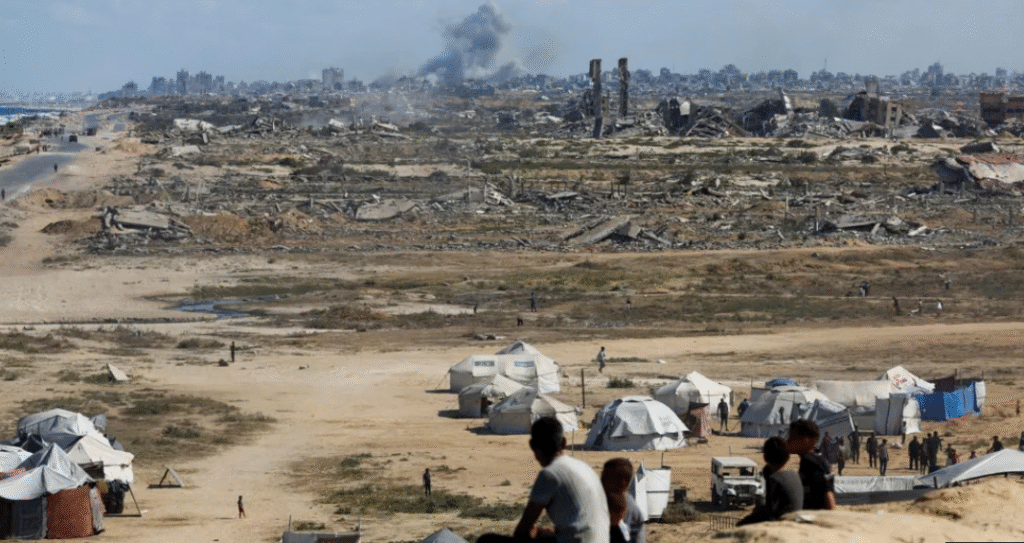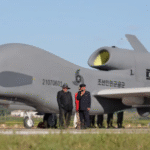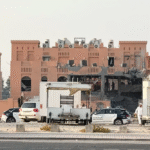President Donald Trump has said he believes the hostages held in Gaza will be released “very soon” as mediators prepare to meet in Egypt on Monday for indirect peace talks between Hamas and Israel.
The discussions are expected to focus on a 20-point U.S. peace proposal, which includes the release of hostages and the transfer of Gaza’s administration to Palestinian technocrats. While Hamas has agreed to parts of the plan, the group has requested further negotiations on several key issues. Its response did not mention disarmament or its future political role in Gaza.
When asked about possible adjustments to the plan, Trump said there was no need for “flexibility,” adding that “everybody has pretty much agreed to it,” though “some changes” might occur. He added that reports from negotiators indicated that “talks are going very well.”
“It’s a great deal for Israel, for the entire Arab and Muslim world, and for the world in general,” Trump said.
Israeli Strikes Continue Despite Calls for Ceasefire
Despite Trump’s earlier call for Israel to “immediately stop the bombing,” Israeli air strikes continued in Gaza over the weekend.
Israeli government spokesperson Shosh Bedrosian said on Sunday that although “certain bombings have stopped,” there was “no ceasefire in place at this point.”
Bedrosian added that Prime Minister Benjamin Netanyahu had authorized defensive fire “if there is a threat to life in the battlefield.” Reports from Gaza indicated that air strikes and tank fire continued overnight, destroying several residential buildings in Gaza City.
A BBC correspondent near the Israel-Gaza border reported hearing explosions and seeing smoke rising from Gaza early Sunday.
According to Gaza’s Hamas-run Health Ministry, at least 65 people were killed in the 24 hours leading up to midday Sunday.

U.S. Urges Pause in Bombing to Allow Hostage Release
U.S. Secretary of State Marco Rubio told CBS News that ongoing air strikes must stop to enable the release of hostages.
“You can’t release hostages while there’s still bombardment,” he said. “That has to stop, but you also have to work through the logistics.”
The proposed U.S. plan calls for an immediate halt to fighting and the release of 48 hostages, 20 of whom are believed to be alive, in exchange for hundreds of detained Gazans.
In a televised address on Saturday, Netanyahu said he hoped to announce the release of hostages “in the coming days.” According to his spokesperson, negotiations are expected to be completed “within a few days maximum” under the Trump administration’s timetable.
Key Delegations Arrive for High-Stakes Talks
Netanyahu has ordered the Israeli delegation to depart for Egypt on Monday. A Hamas delegation, led by chief negotiator Khalil al-Hayya, was expected to arrive in Cairo on Sunday night.
The U.S. delegation will include special envoy Steve Witkoff, Jared Kushner, and Qatari Foreign Minister Sheikh Mohammed bin Abdulrahman Al Thani.
These discussions are viewed as some of the most significant since the start of the war and may determine whether a ceasefire and long-term peace are possible.
Hamas’ Response Seen as a Shift
Hamas’ willingness to engage in talks without its traditional “red lines” was described by many Palestinians as unexpected. A senior Palestinian official told the BBC that Qatari, Egyptian, and Turkish mediators had played a vital role in persuading Hamas to tone down its objections and focus on unresolved issues—such as weapons, governance, and post-war arrangements—during the talks.
Analysts say this shift may signal that Hamas recognizes its limited leverage after nearly two years of conflict. However, residents in Gaza warn that each day of delay means more deaths and destruction for civilians.
Trump Warns Hamas Against Holding Power
When asked what would happen if Hamas insists on remaining in power, Trump said the group would face “complete obliteration.” He also posted on social media that Israel had agreed to an initial withdrawal line in Gaza, part of a broader plan for phased pullbacks by Israeli forces.
Population data suggests that nearly 900,000 Palestinians would initially be unable to return to their homes under this withdrawal map, which excludes areas such as Rafah, Beit Hanoun, Beit Lahia, and parts of Gaza City, Khan Younis, and Deir al-Balah. Hamas rejected similar maps during earlier talks in March and May.
Background: Conflict and Human Toll
The current war began after the Hamas-led attack on southern Israel on October 7, 2023, which killed about 1,200 people and resulted in 251 hostages being taken. Since then, over 67,000 people have been killed in Gaza, according to the local health ministry.
Independent journalists remain banned from entering Gaza, making it difficult to verify claims from both sides.
As negotiators gather in Cairo, the world watches closely, hoping that this latest round of talks might finally pave the way toward a ceasefire and an end to the devastating conflict in Gaza.






















